Ecological problems.ppt
- Количество слайдов: 27
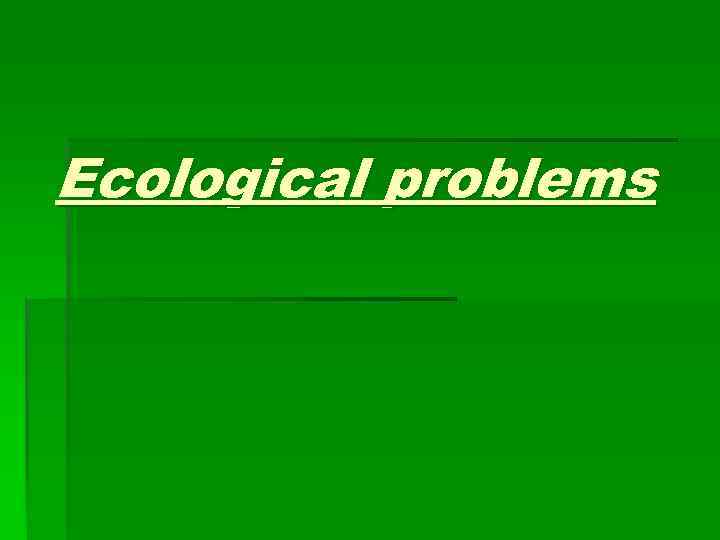
Ecological problems
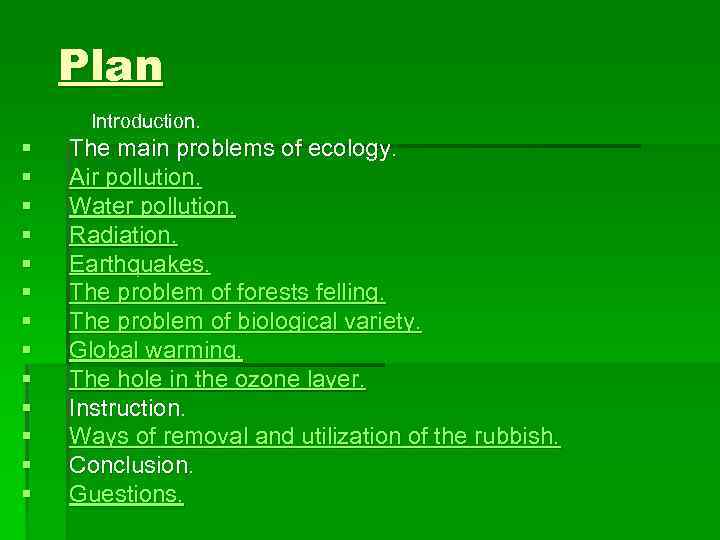
Plan Introduction. § § § § The main problems of ecology. Air pollution. Water pollution. Radiation. Earthquakes. The problem of forests felling. The problem of biological variety. Global warming. The hole in the ozone layer. Instruction. Ways of removal and utilization of the rubbish. Conclusion. Guestions.
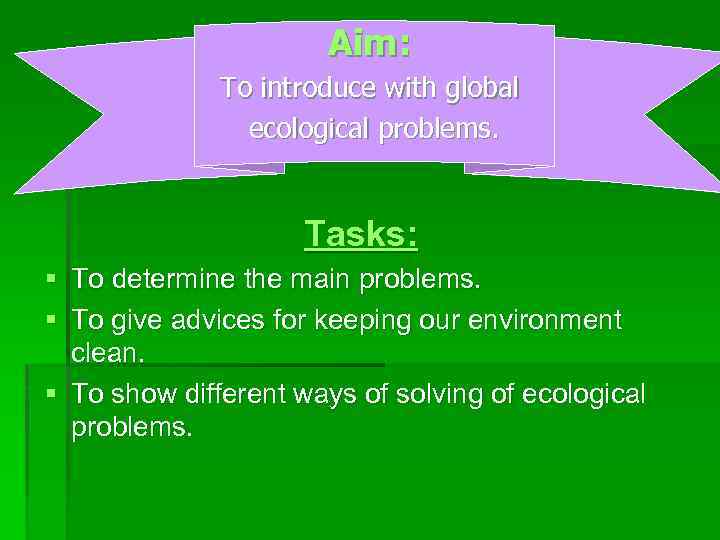
Aim: To introduce with global ecological problems. Tasks: § To determine the main problems. § To give advices for keeping our environment clean. § To show different ways of solving of ecological problems.
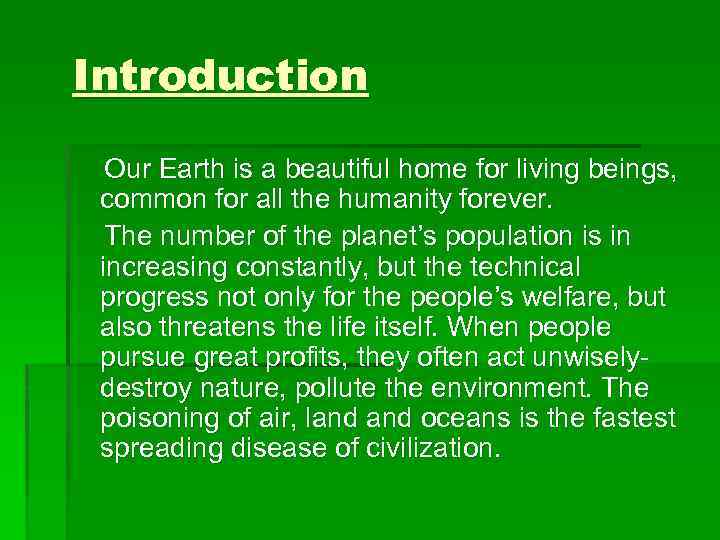
Introduction Our Earth is a beautiful home for living beings, common for all the humanity forever. The number of the planet’s population is in increasing constantly, but the technical progress not only for the people’s welfare, but also threatens the life itself. When people pursue great profits, they often act unwiselydestroy nature, pollute the environment. The poisoning of air, land oceans is the fastest spreading disease of civilization.
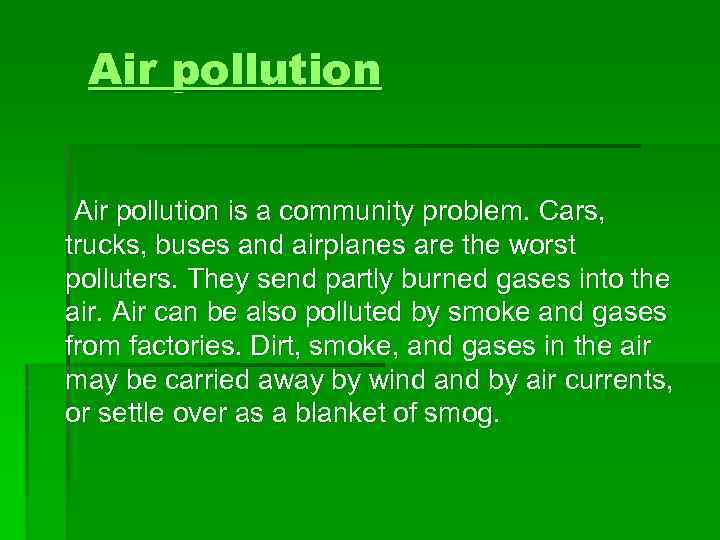
Air pollution is a community problem. Cars, trucks, buses and airplanes are the worst polluters. They send partly burned gases into the air. Air can be also polluted by smoke and gases from factories. Dirt, smoke, and gases in the air may be carried away by wind and by air currents, or settle over as a blanket of smog.
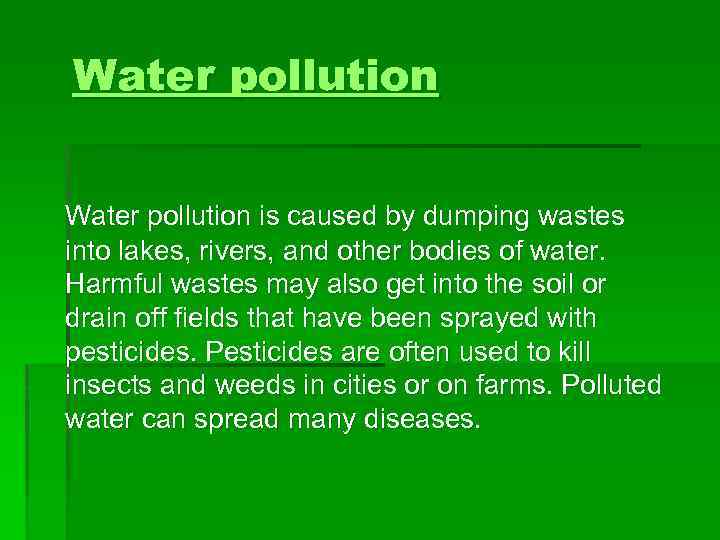
Water pollution is caused by dumping wastes into lakes, rivers, and other bodies of water. Harmful wastes may also get into the soil or drain off fields that have been sprayed with pesticides. Pesticides are often used to kill insects and weeds in cities or on farms. Polluted water can spread many diseases.
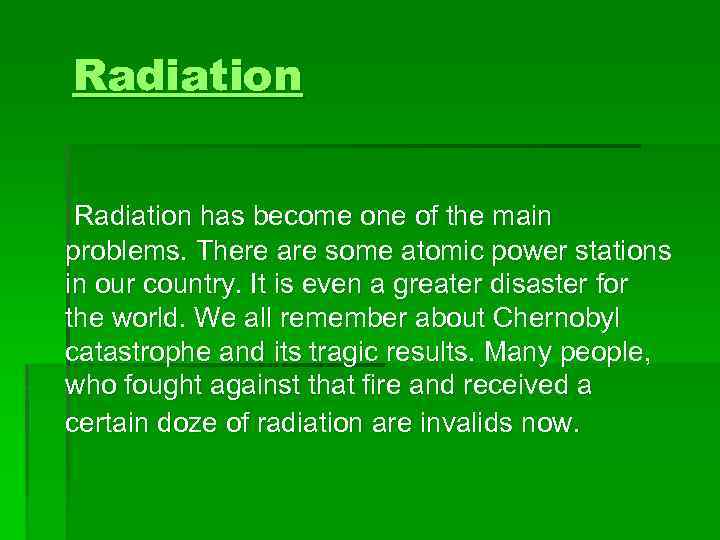
Radiation has become one of the main problems. There are some atomic power stations in our country. It is even a greater disaster for the world. We all remember about Chernobyl catastrophe and its tragic results. Many people, who fought against that fire and received a certain doze of radiation are invalids now.
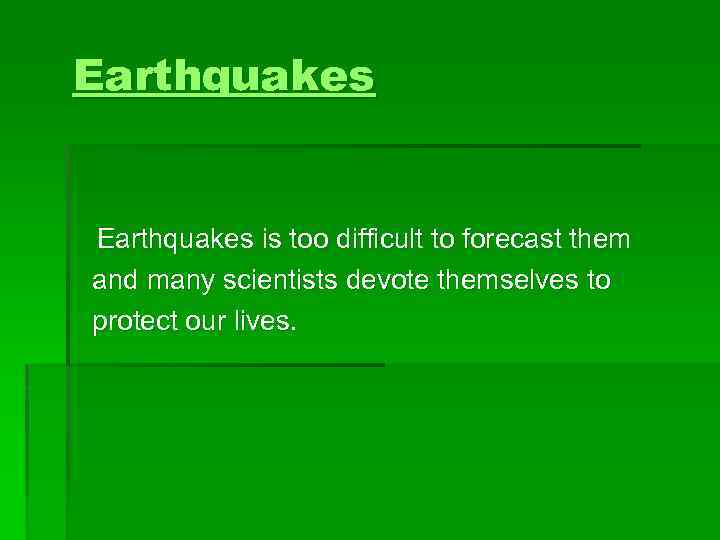
Earthquakes is too difficult to forecast them and many scientists devote themselves to protect our lives.
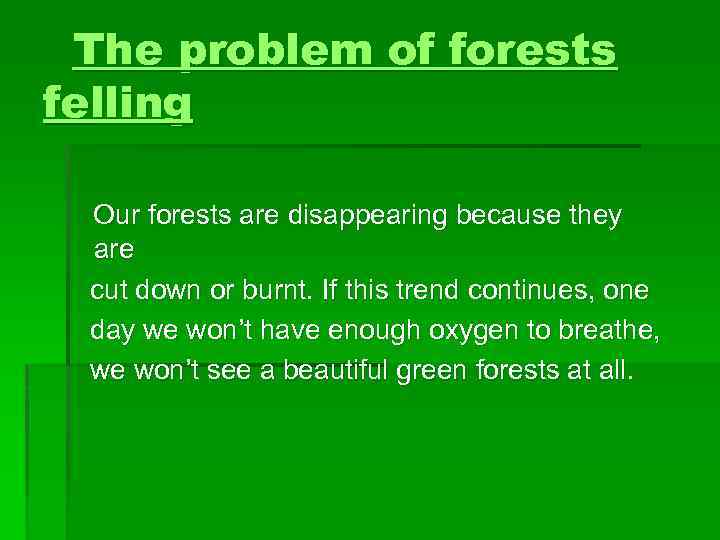
The problem of forests felling Our forests are disappearing because they are cut down or burnt. If this trend continues, one day we won’t have enough oxygen to breathe, we won’t see a beautiful green forests at all.
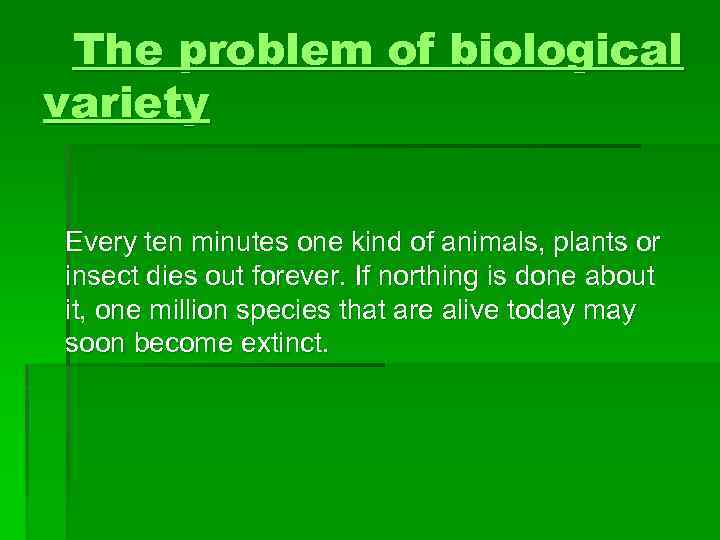
The problem of biological variety Every ten minutes one kind of animals, plants or insect dies out forever. If northing is done about it, one million species that are alive today may soon become extinct.
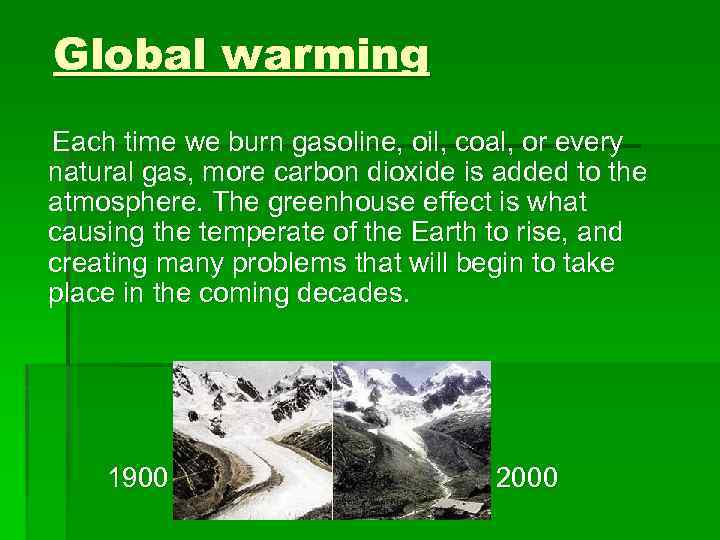
Global warming Each time we burn gasoline, oil, coal, or every natural gas, more carbon dioxide is added to the atmosphere. The greenhouse effect is what causing the temperate of the Earth to rise, and creating many problems that will begin to take place in the coming decades. 1900 2000
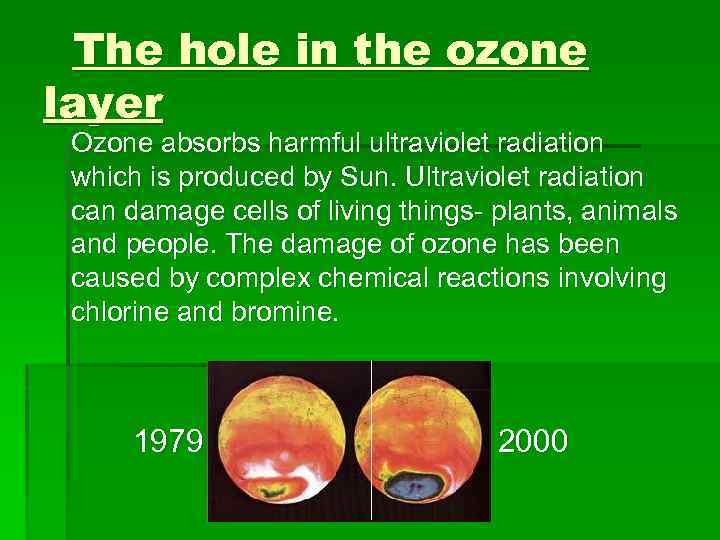
The hole in the ozone layer Ozone absorbs harmful ultraviolet radiation which is produced by Sun. Ultraviolet radiation can damage cells of living things- plants, animals and people. The damage of ozone has been caused by complex chemical reactions involving chlorine and bromine. 1979 2000
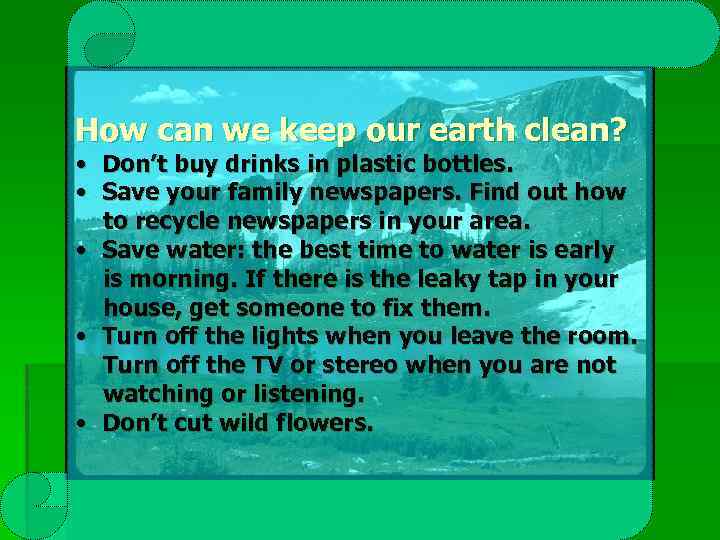
How can we keep our earth clean? • Don’t buy drinks in plastic bottles. • Save your family newspapers. Find out how to recycle newspapers in your area. • Save water: the best time to water is early is morning. If there is the leaky tap in your house, get someone to fix them. • Turn off the lights when you leave the room. Turn off the TV or stereo when you are not watching or listening. • Don’t cut wild flowers.
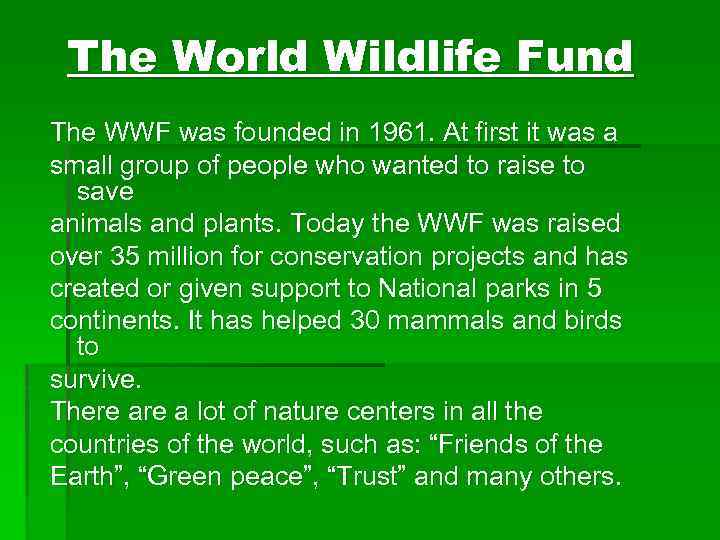
The World Wildlife Fund The WWF was founded in 1961. At first it was a small group of people who wanted to raise to save animals and plants. Today the WWF was raised over 35 million for conservation projects and has created or given support to National parks in 5 continents. It has helped 30 mammals and birds to survive. There a lot of nature centers in all the countries of the world, such as: “Friends of the Earth”, “Green peace”, “Trust” and many others.
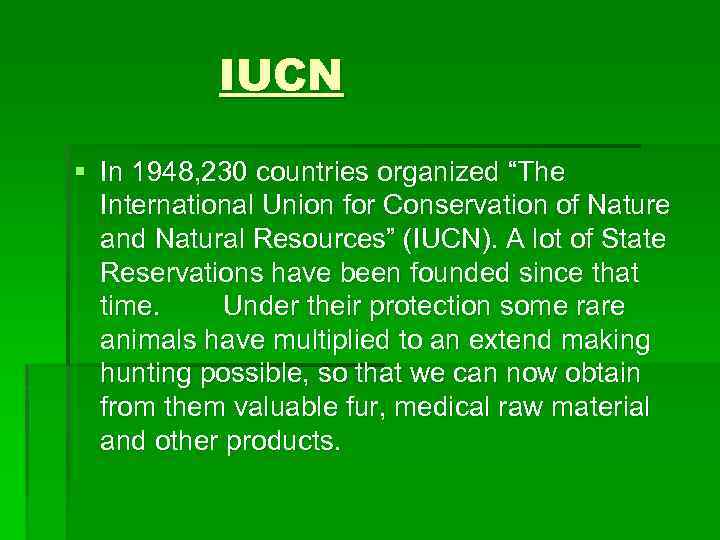
IUCN § In 1948, 230 countries organized “The International Union for Conservation of Nature and Natural Resources” (IUCN). A lot of State Reservations have been founded since that time. Under their protection some rare animals have multiplied to an extend making hunting possible, so that we can now obtain from them valuable fur, medical raw material and other products.
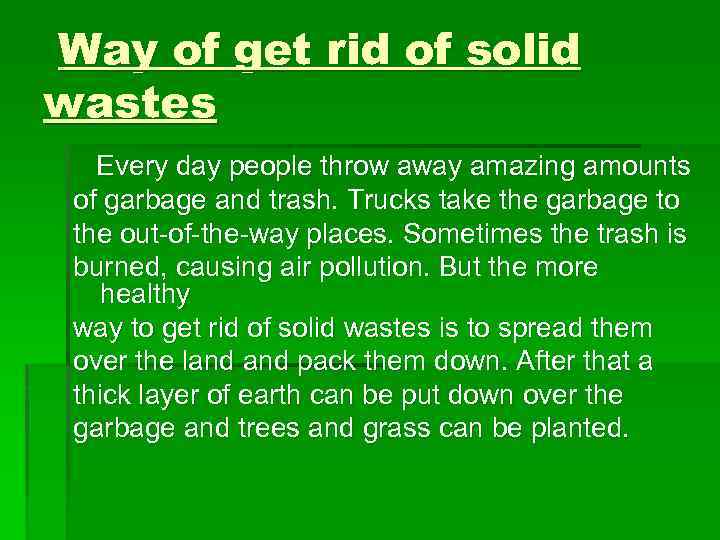
Way of get rid of solid wastes Every day people throw away amazing amounts of garbage and trash. Trucks take the garbage to the out-of-the-way places. Sometimes the trash is burned, causing air pollution. But the more healthy way to get rid of solid wastes is to spread them over the land pack them down. After that a thick layer of earth can be put down over the garbage and trees and grass can be planted.
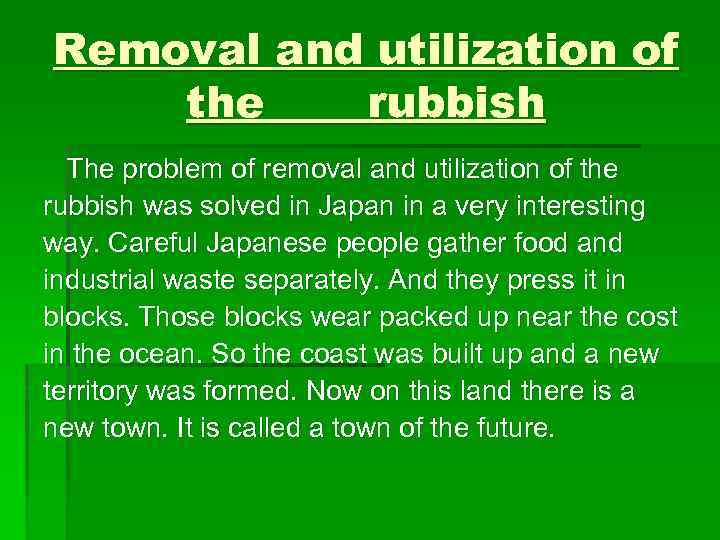
Removal and utilization of the rubbish The problem of removal and utilization of the rubbish was solved in Japan in a very interesting way. Careful Japanese people gather food and industrial waste separately. And they press it in blocks. Those blocks wear packed up near the cost in the ocean. So the coast was built up and a new territory was formed. Now on this land there is a new town. It is called a town of the future.

If you don’t think about the future you will not to have it John Golsworthy Fortunately, it’s not too late to solve these problems. We can plant trees and create parks for endangered animals. We can recycle our wastes and persuade enterprises to stop polluting activities, because it is apparent that we are destroying our Earth and future.
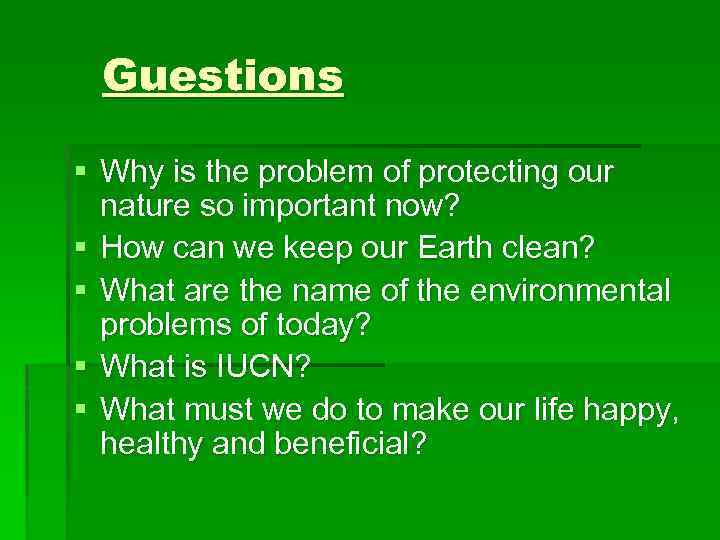
Guestions § Why is the problem of protecting our nature so important now? § How can we keep our Earth clean? § What are the name of the environmental problems of today? § What is IUCN? § What must we do to make our life happy, healthy and beneficial?
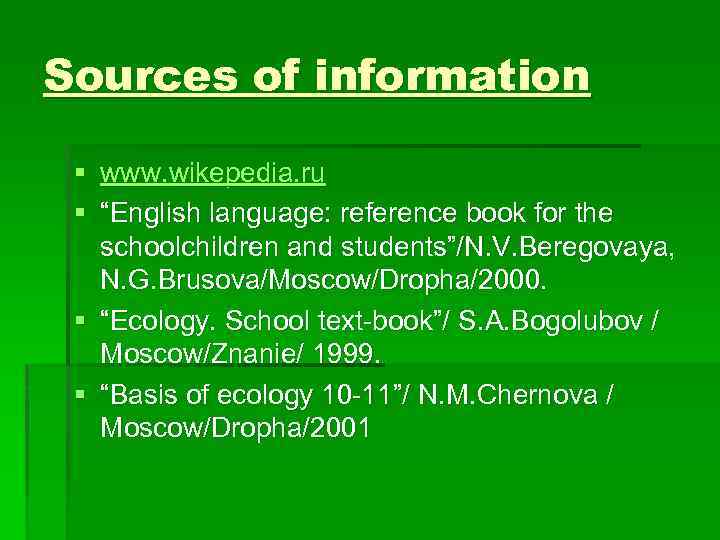
Sources of information § www. wikepedia. ru § “English language: reference book for the schoolchildren and students”/N. V. Beregovaya, N. G. Brusova/Moscow/Dropha/2000. § “Ecology. School text-book”/ S. A. Bogolubov / Moscow/Znanie/ 1999. § “Basis of ecology 10 -11”/ N. M. Chernova / Moscow/Dropha/2001

Thank you for attention!
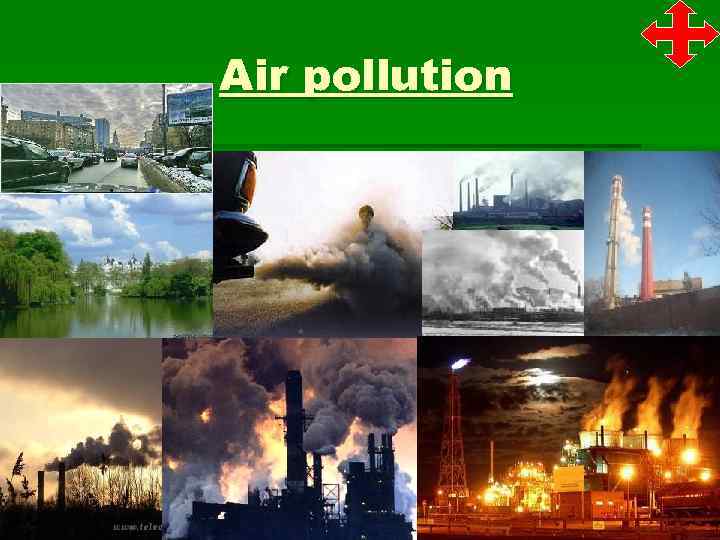
Air pollution
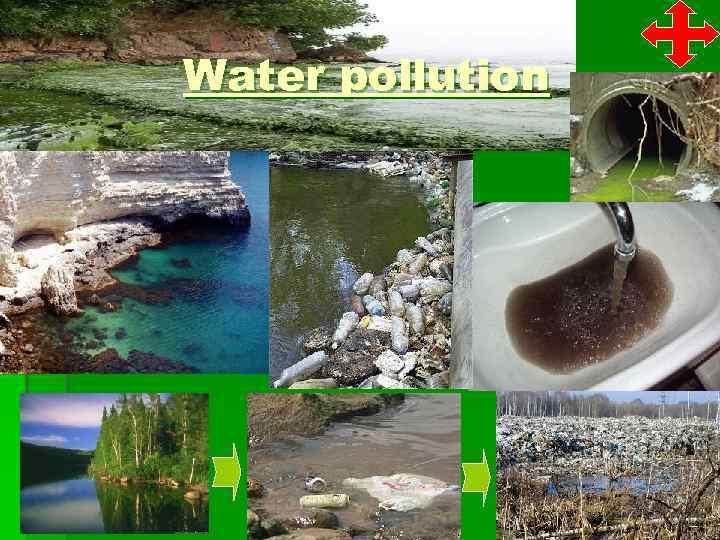
Water pollution
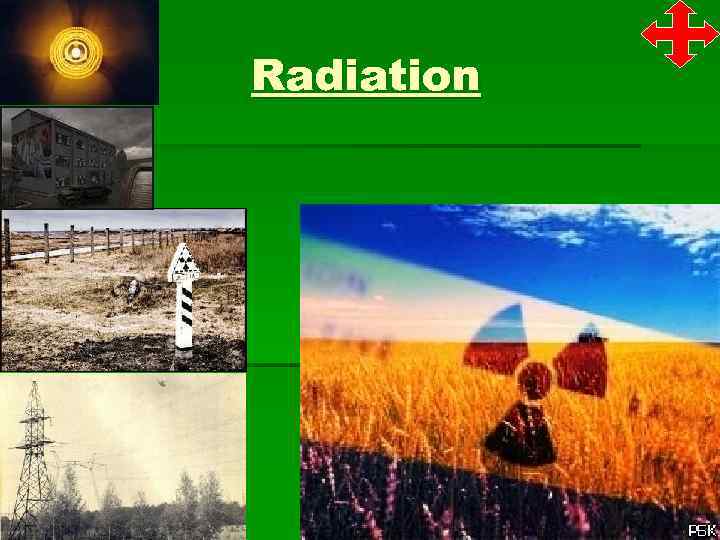
Radiation
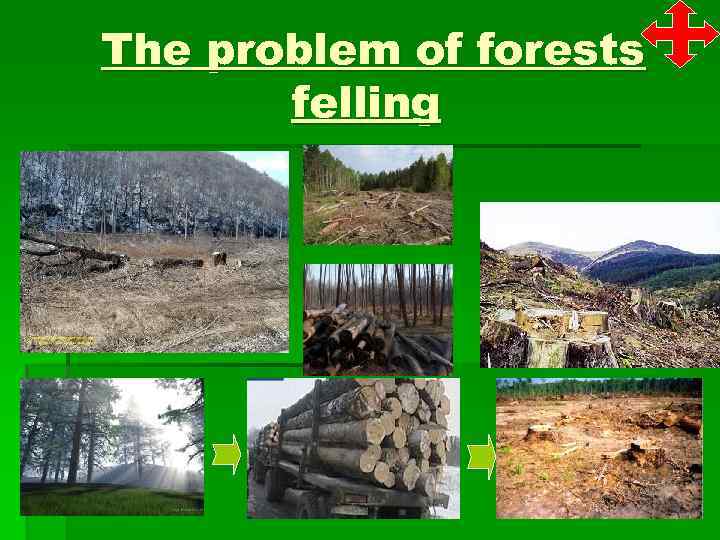
The problem of forests felling
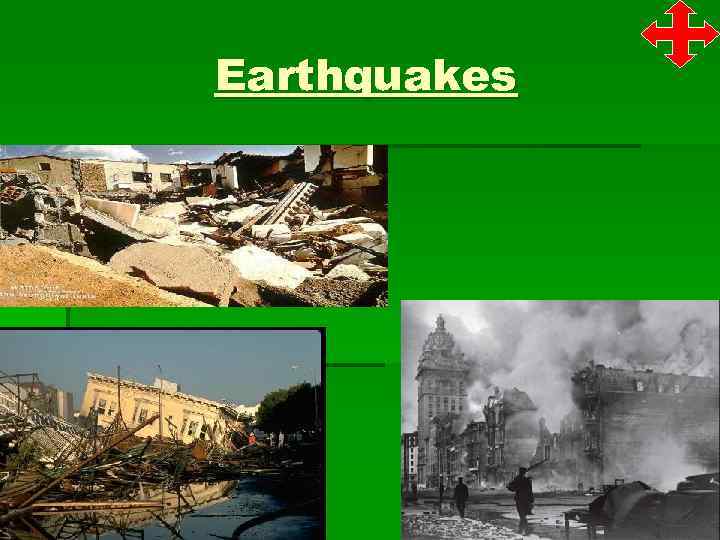
Earthquakes
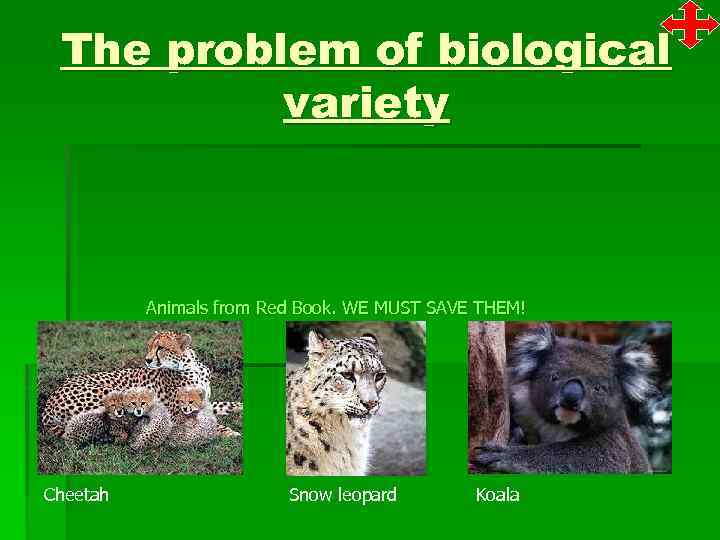
The problem of biological variety Animals from Red Book. WE MUST SAVE THEM! Cheetah Snow leopard Koala
Ecological problems.ppt